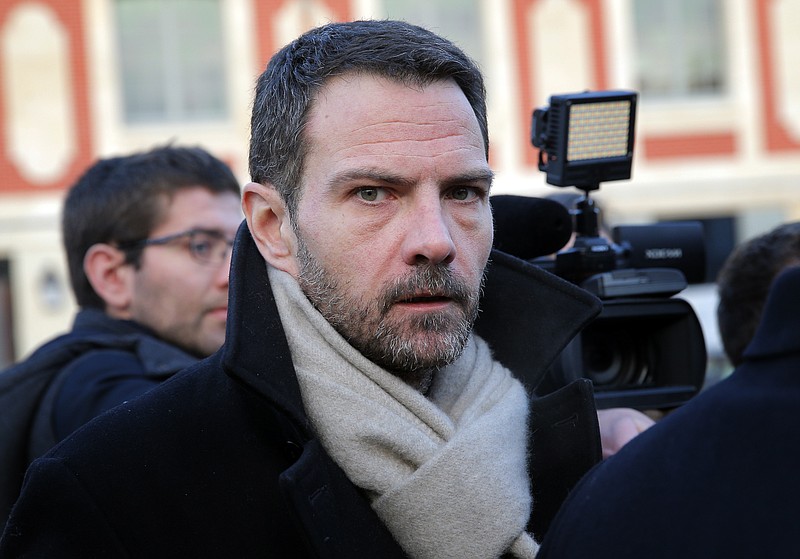VERSAILLES, France (AP) - Former French trader Jerome Kerviel will learn Friday whether he'll have to pay a staggering 4.9 billion euros ($5.5 billion) to the bank that employed him when he piled up huge losses through reckless operations, a bill he'd have no realistic chance of covering in his lifetime.
An appeals court near Paris will rule on whether to uphold, quash or cut the amount of civil damages that Kerviel was initially ordered to pay bank Societe Generale in compensation for the losses revealed in 2008.
In June, the prosecutor asked the judges to throw out the damages altogether. If the court follows his arguments, it would be a stinging defeat for the bank after years of legal battle.
In one of the biggest ever trading fraud cases, Kerviel was sentenced to three years in prison for nearly bringing down the bank with dubious financial operations just before the financial market meltdown in 2008.
The 39-year-old trader has been found guilty of forgery, breach of trust and fraudulent computer use for covering up bets worth 50 billion euros - more than the market value of the entire bank.
In 2014, the Cour de cassation, French highest court, upheld Kerviel's criminal conviction and three-year sentencing, but annulled the 4.9 billion-euro civil damages, saying they were "disproportionate" and that the bank had its share of responsibility in its own losses.
The initial amount of damages - equivalent to the total losses reported by the bank in the fraud - is so huge that Kerviel wouldn't be able to pay them anyway.
The Cour de cassation argued that Societe Generale "failed to carry out hierarchical control" over Kerviel for months and that its "faults" and "negligence" allowed him to commit his fraud and contributed to produce its own damage. It also pointed that Kerviel never sought to get rich for himself.
As a result, the top court ordered a new civil trial.
Kerviel has said his managers were aware of his risky operations, which had initially earned the bank 1.4 billion euros ($1.6 billion) in 2007, weeks before turning sour in early 2008.
He claims the bank had quietly welcomed his unauthorized trades when they made money, but dropped him when they began making losses.
The lawyers for Societe Generale have said Kerviel used his computer, financial skills and fake documents to conceal his unauthorized trading from managers. They allege he gambled a staggering 50 billion euros in speculative investments and was eventually uncovered by his bosses.
Also at stake for the bank in the new civil trial are the big tax credits it received from the French state in compensation for the losses resulting from Kerviel's fraud. If Societe Generale was eventually found responsible for faults in handling the Kerviel case, the French government could ask the bank to pay back the tax credits, reportedly worth 2.2 billion euros ($2.5 billion).
New court episodes are expected in Kerviel's legal saga, which has captured the national imagination. His lawyer is now trying to have his client's criminal conviction overturned.
The battle is also about image and reputation, both for the bank and Kerviel, who has tried to portray himself as a victim of an improperly regulated banking sector and a crusader against the ills of the financial world. In 2014 he made a pilgrimage by foot to Italy to meet the pope.
